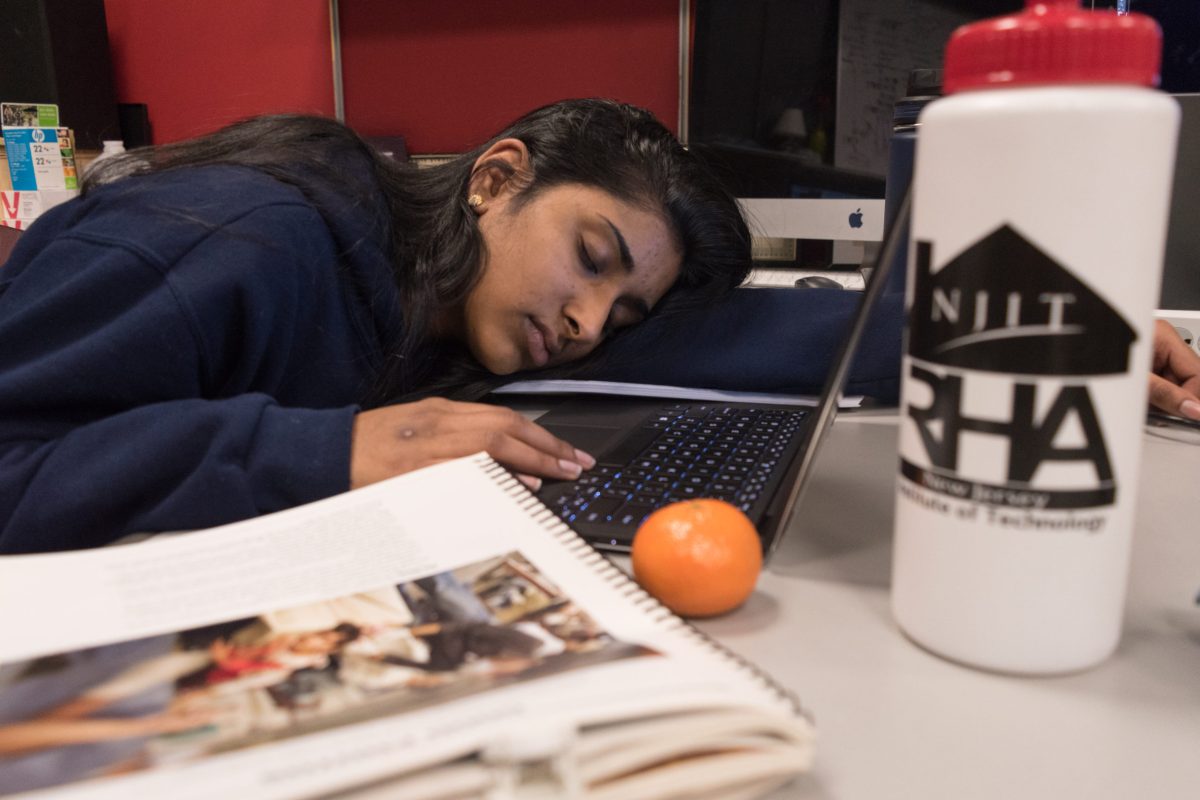On average, college students get between 6 and 6.9 hours of sleep per night, according to the University of Georgia’s University Health Center. The recommended amount of sleep per night for college-aged young adults is between 6 and 10 hours, according to the same source.
Most NJIT students do not feel that they get enough sleep during the semester, according to a Google Forms survey distributed to multiple student group chats. Unempirical as this survey may be, it does give a small glimpse into sleep culture at NJIT. Of 42 student respondents, 59.5% feel that they are not getting enough sleep. Most students (52.4%) reported getting an average of only four to six hours of sleep per night.
Is this problem due to the structure of NJIT’s educational system, or the students’ social and personal lives?
When interviewed about their sleep habits, students had varying explanations.
Nirali Trivedi, a junior biology major, said she is not at all satisfied with the amount of sleep she gets.
She gets, on average, “four hours…sometimes six or seven” in a night.
Trivedi participates in scientific research regarding “traumatic brain injury and the hyperactivity of cortical neurons.” Oftentimes, this research takes place in the early morning— usually around 8:00 a.m. This, combined with staying up late (often until 2:00 a.m.) “socializing, studying, and working,” prevents her from getting an adequate amount of sleep every night.
When asked if she thinks socializing takes a significant toll on her sleeping schedule, she laughed, responding, “I wish I could socialize more.”
Trivedi’s statements regarding socializing are consistent with the survey data. Over half of all responses to the question, “When do you get the least amount of sleep?” explicitly reference homework, classwork, or exams getting in the way of students’ sleep schedules.
Meanwhile, only four out of the 42 responses overtly mention socializing as a hindrance to sleep.
So, does the problem then lie within NJIT’s education system? After all, 52.4% of surveyed students report putting off sleep to get schoolwork done.
Travis Schwarz, a fifth-year architecture student, says, “It’s really dependent on each individual class and how much homework the specific professor requires.”
Regarding lack of sleep, Schwarz notes that there are a variety of reasons why he occasionally might get little more than three hours of sleep in a night. “Sometimes it’s because I’m doing studio work, sometimes it’s people around my room being too loud, and other times my mind is racing thinking about everything I have to do the next day.”
With all the time spent studying, and the lack of sleeping or socializing reported by NJIT students, the overall mental health of the NJIT campus is surely taking a toll.
Says Schwarz, “I think [the lack of sleep] affects my mental health. I definitely feel less motivated to do anything, even things I enjoy doing, when I haven’t slept well the night before. I also tend to let things agitate me more when I’m tired.”
The reported lack of sleep is concerning for students’ mental health, and students should be aware of their own schedule and limitations, and work towards gaining a reasonable sleep schedule to better their overall well-being.
If any student needs assistance managing their time or mental health, the Center for Counseling and Psychological Services, located in Campbell Hall, is available to all students. Additionally, the Dean of Students Office is always accessible and ready to help students with anything they might require for them to be successful in all aspects of their life at NJIT.
Photo by Katherine Ji | The Vector





































